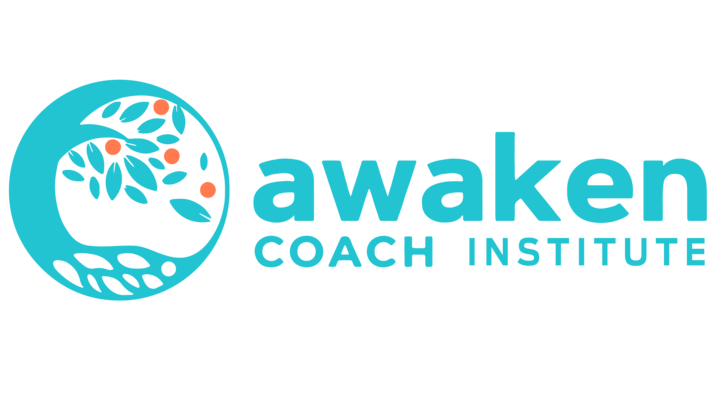6 Core Practices of Spiritual Coaching That Create Transformation With Clients

When I first started coaching, the whole coaching philosophy was night and day from what I had learned in the School of Life. I had spent years in a world of certainty, right and wrong, reward and punishment, and looking to others as authorities in my life.
In coaching, I began to experience something entirely different. I leaned into choice, agency, imagination, and possibility. That shift changed my life.
Yet as I continued growing, I realised that my early coach training was still built on the belief that people needed fixing or improving, that with enough goals and action steps, we could become better versions of ourselves.The longer I coached, the more I wanted to trust in wholeness - the underlying belief that my conversation partner was already deeply OK, and just needed to tap into that knowing.
I began formulating my thoughts, writing them down as I learned from wise elders, and was excited to teach what I had learned. I ended up with hundreds of pages of wisdom.
However, the first three coaching schools I wrote curriculum for told me that they didn’t think they could train their other faculty members to go so deep, and asked me to stick to the basics. So, I eventually created my own coach training program - Awaken Coach Institute.
Our ICF-accredited coach certification programs teach transformational coaching as a path to wholeness. We integrate spiritual life coaching, empowerment coaching, and coaching mastery into one holistic framework that helps people lead, love, and live from their deepest truth.
The Deeper Philosophy Behind Spiritual Coaching
Spiritual coaching invites us to see each client as already whole, already wise, already connected to the Great Love that holds us all. At Awaken, we teach that transformation happens not through fixing, but through presence.
In our post Becoming a Spiritual Awakening Coach, we explore the sacred role of a spiritual coach more fully. Spiritual life coaching is not about teaching people what to believe; it’s about creating the conditions where they can remember who they are.
We firmly believe and trust the following core principles. These skills, combined with the practical structure of ICF-accredited coach certification, are founded on radical acceptance and a solid belief in wholeness. They provide the presence and loving space that allows people to see themselves for the wonderful people they are - for the loving intelligence at their core, despite all that shame and fear would say to the contrary.
6 Core Practices of Spiritual Coaching That Create Transformation With Clients
1. Listening at Multiple Levels
True listening goes far beyond hearing words. In our coach training, we listen for the whole person: their environment, emotions, body language, behaviors, feelings, thoughts, beliefs, identity, and purpose. We also listen for what is unspoken, for the still, small voice beneath the surface.
Listening at multiple levels is a core skill in transformational and empowerment coaching because it opens new dimensions of awareness for both coach and client. It invites clients to notice patterns, possibilities, and connections that had been hidden from view.
2. Trusting Silence as an Active Ally
In a world that values speed and solutions, silence can feel uncomfortable. But in spiritual coaching, silence is an active ally. It allows insight to arise naturally, without force or direction.
When we coach in silence, we access timelessness. We trust that something wiser than our words is at work. This is one of the practices we teach from the first week of Awaken’s All-in-One Coach Certification Course.
3. Receiving the Client Beyond Understanding
To truly receive another human being means welcoming all of them, light and shadow, joy and pain. As coaches, we let go of the need to fix, analyse, or even fully understand. Our role is to hold space where every part of the client is seen and accepted. We’re actively releasing any agendas for the client.
This is where empowerment coaching begins. Clients experience what it feels like to be received without judgement, and in that acceptance, they rediscover their own inner authority.
4. Noticing the Soul’s Metaphors
The language of the soul often arrives through metaphor. When clients describe their experience as “carrying a heavy backpack” or “standing at a crossroads,” those images hold wisdom that words cannot fully express.
In spiritual life coaching, we follow the metaphor rather than explain it away. We explore it together, trusting that the subconscious and the sacred are speaking through it.
You can learn more about this practice in our YouTube conversation with MCC Coach Lyssa deHart, Our Internal Metaphors Shape Our External Reality.
5. Allowing Emotion to Provide Wisdom
In transformational coaching, emotions are not barriers to overcome; they are guides to deeper truth. When we allow emotion to speak, we invite the client’s True Self to engage directly with what’s arising.
At Awaken, we teach coaches to honour emotion as a messenger. Whether it shows up as grief, joy, fear, or longing, emotion opens a doorway to understanding identity and belief. Emotional presence creates safety, and safety allows transformation.
6. Rooting in the Great Love
Every session begins and ends with Love. Whether you call it Spirit, Peace, Source, or Life, something larger than us holds both coach and client. Letting that knowing shape every word, silence, and intention, we become instruments of healing and transformation.
At Awaken, this is not theory. It is lived experience. Our community practices this presence daily, in mentor coaching, in group supervision, and in the quiet moments of listening to one another with compassion.
Why These Practices Matter in Coach Certification
These principles may seem fairly esoteric, but I find them incredibly practical. They are the skills you’ll begin to embody in Awaken’s ICF-accredited coach certification programs. Through live classes, peer coaching, mentor feedback, and reflection, you’ll learn how to bring these principles to life in every conversation.
If you're interested in supporting clients to find their own loving presence, watch this video What Does It Really Mean to Become a Spiritual Life Coach? on our Coaching Mastery and Growth YouTube series.
Whether you choose to study virtually or join us in person for our immersive Spain retreat along the Camino de Santiago, you’ll be invited into a transformational experience that blends practical mastery with spiritual awakening.
This is what makes Awaken unique. We don’t separate professional skill from personal growth. Our graduates don’t just become certified coaches, they become instruments of healing and transformation in their workplaces, families, and communities.
Begin Your Journey Toward Certification
If you feel called to coach with presence, love, and spiritual depth, we’d love to welcome you. Join our next live Q&A to discover which All-in-One Coach Certification pathway is right for you.
About the Author
Christi Byerly, MCC, is the founder and CEO of Awaken Coach Institute. Her coaching process motivates you to build a community of empathy and grace around you, and to live your mission as part of something bigger than you are. With over 15 years of coaching experience, Christi has trained hundreds of new coaches and maintains a thriving practice focused on depth, presence, and authentic transformation.
Frequently Asked Questions
1. What is spiritual life coaching?
Spiritual life coaching is a form of transformational coaching that helps people reconnect with their inner wisdom, values, and purpose. It is not about religion but about deepening awareness and alignment between mind, body, and spirit.
2. Do I need to be spiritual or religious to become a coach with Awaken?
Not at all. Our coach certification programs welcome people of all backgrounds and beliefs. What matters is curiosity, openness, and a desire to create meaningful change through love and presence.
3. How is spiritual coaching different from traditional life coaching?
While life coaching often focuses on goals and outcomes, spiritual coaching explores identity, values, and being. It connects achievement to alignment, helping clients act from their truest selves rather than external expectations.
4. Is the Awaken Coach Certification accredited by the ICF?
Yes. Awaken Coach Institute is accredited at Level 1 and Level 2 by the International Coaching Federation (ICF). Graduates of our All-in-One Coach Certification courses leave fully prepared to pursue ACC or PCC credentials, and all our training is aligned with ICF Core Competencies.
5. How can I decide between the virtual and Spain-based certification programs?
Both lead to ICF-accredited certification. The virtual course offers flexibility and global connection, while the Spain retreat provides an immersive, spiritual environment for deep transformation. Join a live Q&A to explore which format fits your journey.

0 comments
Leave a comment
Please log in or register to post a comment